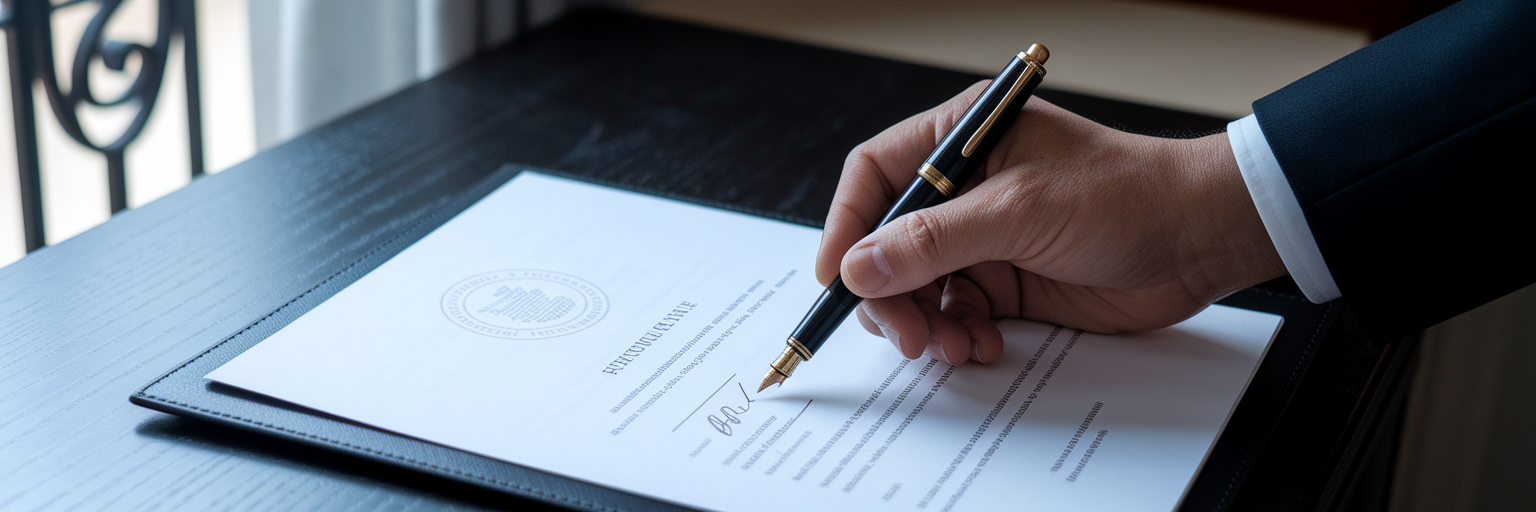A Louisiana Guide to International Document Authentication

As personal and business affairs increasingly cross international borders, the need for officially recognized documents has grown. This is where document authentication becomes essential, serving as the formal process that allows your Louisiana paperwork to be accepted worldwide.
Why Your Louisiana Documents Need Authentication for Global Use
At its core, document authentication is the process of verifying that a Louisiana official's signature or seal on a document is legitimate. Think of it as a state-level guarantee. The primary goal is to assure foreign governments, banks, or courts that your documents are valid and can be trusted. Without this verification, you could face significant setbacks.
Whether you are finalizing an overseas business merger, claiming an inheritance abroad, or applying for dual citizenship, your paperwork must be properly authenticated. Skipping this step can lead to rejected contracts, stalled legal proceedings, or denied applications. Proper document authentication Louisiana provides is not just bureaucratic red tape. It is a critical safeguard that ensures your legal and personal affairs proceed smoothly across borders, preventing costly and frustrating delays.
Apostille vs. Certificate of Authentication: What's the Difference?
Once you know a document needs authentication, the next question is which type of certification you need. The answer depends entirely on the destination country. The Hague Convention of 1961 simplified this process for its member nations by creating a standardized certificate called an Apostille. If your document is headed to a country within this treaty, this is the certificate you will need.
For countries that are not part of the Hague Convention, a Certificate of Authentication is required. This process can sometimes involve extra steps, such as getting the document legalized at the destination country's embassy or consulate in the United States. Understanding how to get an apostille in Louisiana versus a certificate is crucial. The Louisiana Secretary of State is the designated authority for issuing both types of certifications, as detailed on their official website.
| Feature | Apostille | Certificate of Authentication |
|---|---|---|
| Applicable Countries | Nations in the Hague Convention | Nations NOT in the Hague Convention |
| Process Simplicity | Simpler, one-step process | May require extra embassy legalization |
| Issuing Authority | Louisiana Secretary of State | Louisiana Secretary of State |
| International Recognition | Accepted by all member countries | Recognized after embassy legalization |
Note: The correct choice depends entirely on the destination country. Always verify if the country is a member of the Hague Convention before submitting your documents.
The Authentication Process with the Louisiana Secretary of State
Navigating the authentication process involves a few precise steps. Getting any one of them wrong can result in your document being returned, so careful attention to detail is essential from the very beginning.
- Flawless Notarization: Before anything else, your document must be perfectly notarized by a commissioned Louisiana notary public. This is the most common point of failure. Any error in the signature, date, or notary seal will cause an immediate rejection from the state. A skilled notary who understands these strict requirements is invaluable, as they ensure the foundation of your document is solid.
- Submission to the State: Once notarized, the original document must be sent with the correct request form and fee to the Louisiana Secretary of State authentication office in Baton Rouge. There, officials will verify the notary's commission against state records to confirm their authority to act.
- Issuance of the Certificate: After verification, the state will issue either an Apostille or a Certificate of Authentication. This certificate is physically attached to your original document, creating a single, secure package that is ready for international use. An expert can manage this entire workflow, ensuring the initial notarization is correct from the start. For professional assistance, you can learn more on our homepage.
Common Documents That Require Authentication
A wide range of documents may require authentication for use abroad. Identifying whether your paperwork falls into this category is the first step. Here are some of the most common examples of international document notarization requests.
- Personal and Family Documents: This category includes vital records like birth certificates, marriage certificates, and adoption papers. It also covers legal instruments such as powers of attorney that grant authority to someone in another country.
- Business and Legal Documents: Companies expanding internationally often need to authenticate articles of incorporation, commercial invoices, affidavits, and corporate resolutions to establish legal standing or conduct business overseas.
- Educational Records: If you plan to study or work in another country, you will likely need to authenticate your diplomas, university transcripts, and other academic credentials to prove their validity.
For clients who require assistance in Spanish, dedicated services are available to guide you through the process.
How to Avoid Common Pitfalls and Delays
A smooth authentication process comes down to preparation. A small mistake at the beginning can cause significant delays, so it pays to be thorough. Here are a few tips to ensure your documents are processed without any issues. Have questions about notarization? Check our FAQ.
- Double-Check the Notarization: We cannot stress this enough. The most critical step is ensuring the notarization is error-free. Before submitting, confirm that all names are spelled correctly, the dates are accurate, and the notary's seal is clear and legible.
- Confirm the Destination Country's Requirements: Before you even begin, verify if the destination country is a member of the Hague Convention. This simple check ensures you request the correct certificate and avoid having to restart the process.
- Use a Professional Service: Navigating state rules and international treaties can be complex. An experienced apostille services New Orleans provider like JP Notary handles these details daily. A mobile notary Jefferson Parish can offer convenience by coming directly to your home or office. For expert assistance and to ensure your documents are handled correctly from the start, you can rely on JP Notary or call us at (504) 513-7333.
Need Professional Notary Services?
Contact JP Notary for reliable, professional notary services in New Orleans.


